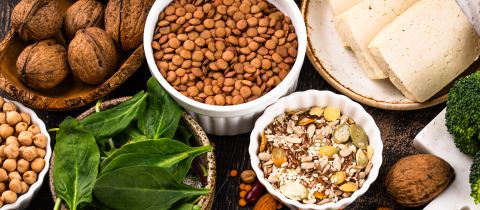It has been said that eating a couple of carrots a day is like signing a health insurance policy. There are clear benefits to carrot consumption but let's deal first with the rare problems that can crop up. Allergies are possible but uncommon. A 37 year old man, for example, reported weakness in the legs, generalized itching and a change in his voice 20 minutes after drinking a glass of carrot juice. He said that this had happened on two previous occasions. Adrenaline and steroids were needed to treat the problem. Generally, even people who are allergic to raw carrots can readily tolerate cooked ones. Other problems are even more rare than allergies. In a fascinating report, an article in The British Journal of Addiction describes the case of three patients who suffered withdrawal symptoms when they tried to give up eating carrots. Apparently one of them, a 40 year old man ate about five bunches a day in an attempt to give up smoking. But when his skin turned orange he decided he better give up the carrots as well. He couldn't! He became very irritable when the carrots were taken away. Carrots actually do contain a psychoactive compound called "myristicin" which may explain the addiction in this case. Of course most people do not eat enough carrots to experience this effect.
Studies about the benefits of carrots just keep coming. Harvard researchers found a strong inverse relationship between diets rich in spinach and carrots and the incidence of stroke. Women who ate five or more servings of carrots weekly had a 68% lower risk, spinach eating daily resulted in a 43% lowering of risk. When 124 lung cancer patients who were not regular smokers were compared with 235 controls in terms of what they ate, carrots were seen to offer the best protection against the disease. The compounds thought to be responsible for these effects are the "carotenoids," the best known of which is beta carotene, the substance mostly responsible for the color of carrots. These are antioxidants which promote health by neutralizing those nasty free radicals which are produced as byproducts of metabolic processes. Cooked carrots release carotenoids more readily because heating breaks down the walls of the cells where they are stored.
So the answer to Bugs Bunny's classic question "What's Up Doc?" is an easy one. Carrots! The more you eat the better. And if you really want the benefits of the carotenoids, dip them into a little olive oil. The fat helps the absorption of the fat-soluble carotenoids. Some of these carotenoids, like lutein and zeaxanthin have even been linked with a reduced risk of eye problems. The leading cause of blindness in people over 65 is macular degeneration in which the macula, the part of the retina at the back of the eye, becomes damaged. In a study, 356 patients were matched against 520 controls. People who consumed sufficient carotenoids had a 43% lower risk. The most effective compounds were lutein and zeaxanthin. These form the yellow pigment in the macula and possibly prevent damage by filtering out visible blue light? It's easy to see that carrots are great!







